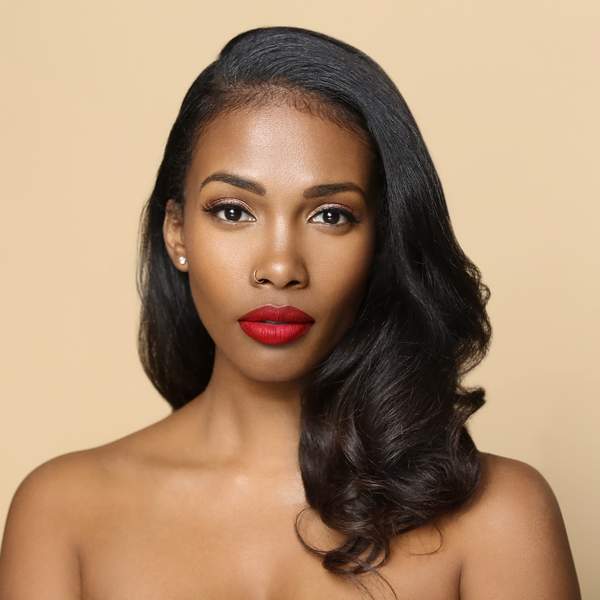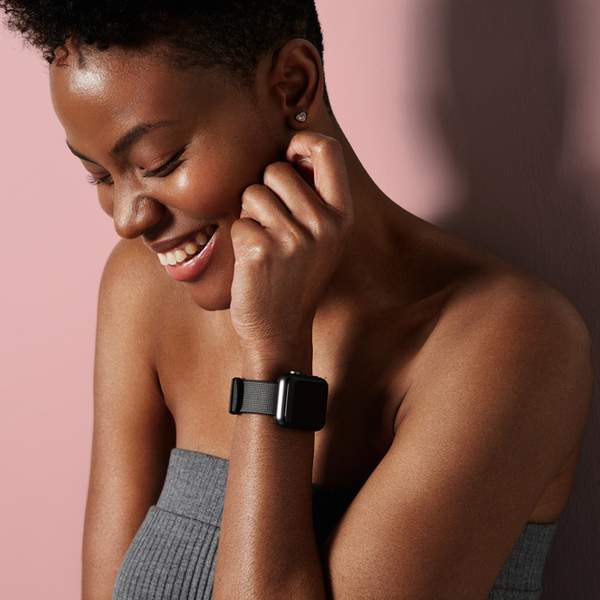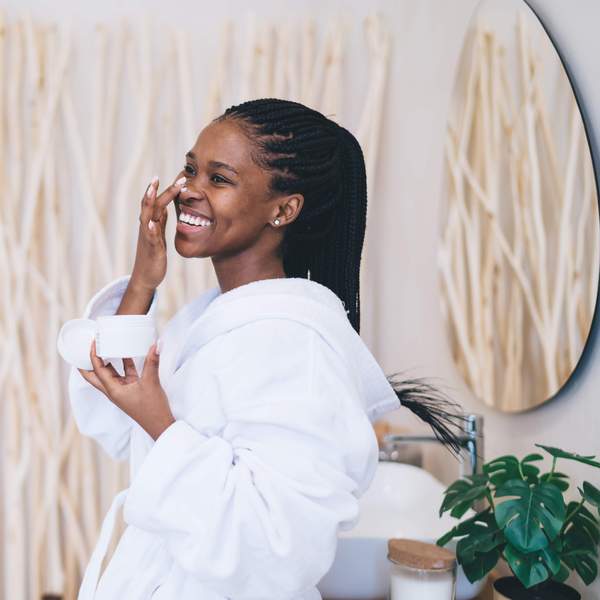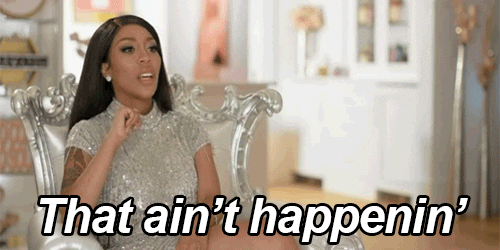Melissa Butler is a makeup pioneer. In 2012, when her beauty brand, The Lip Bar, was first launched, it was rare to find lip products bold enough to represent daring makeup enthusiasts, yet subtle enough to complement the range of skin tones for Black and brown customers. For The Lip Bar, the mission was clear: challenge the status quo within the industry and increase visibility for Black women to be seen and understood as their own standard of beauty.
When she first launched her widely popular lipstick line, Melissa was building her plane in the sky at a time where most of the conversations around diversity and inclusion within the beauty industry were still just faint chatter. In 2015, Melissa was coming off of the public "redirection" of her, now viral, Shark Tank appearance. What some have deemed as a moment of rejection, ultimately proved to be a lesson in preparation for life's turning points, "When we had all the love and excitement from Shark Tank, I didn't know what to do with it. We didn't have the proper email flows, we weren't running any ads. I didn't know how to monetize it."
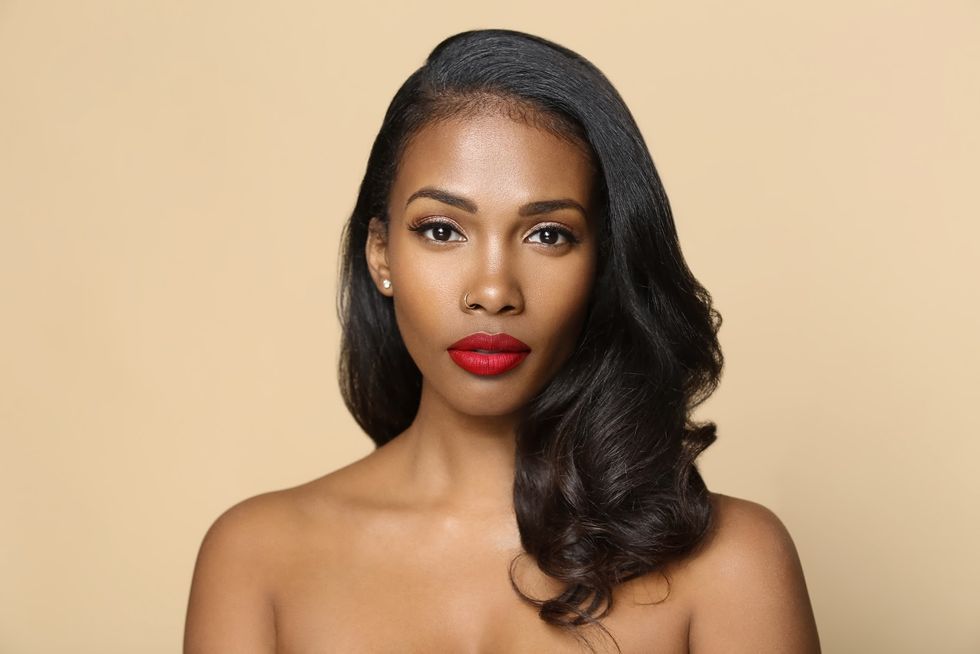
(photo: The Lip Bar)
"When we had all the love and excitement from Shark Tank, I didn't know what to do with it. We didn't have the proper email flows, we weren't running any ads. I didn't know how to monetize it."
Although Shark Tank served as an opportunity to generate awareness for the brand, it's not what Melissa attributes to The Lip Bar's initial growth. While on the show, she experienced harsh criticism from the panel of investors who weren't keen to the vision of her brand. In just five years since the episode aired, the foresight of The Lip Bar's collection of vibrant lipstick colors has proven to be a classic example of innovation before its time. But everything comes back around, and in true full-circle fashion, the brand was able to remain nimble while challenging trends and setting new markers for beauty ingenuity.
Now, Melissa continues to revolutionize the beauty world with the newest addition to her expanding "Fast Face" product line, the Quick Conceal, Caffeine Concealer. In a world where many brands are exploring the diversification of their complexion products with 20-50 shade rollouts, this 6-shade collection of brightening concealers challenges the notion of whether more is actually beneficial for the customer.
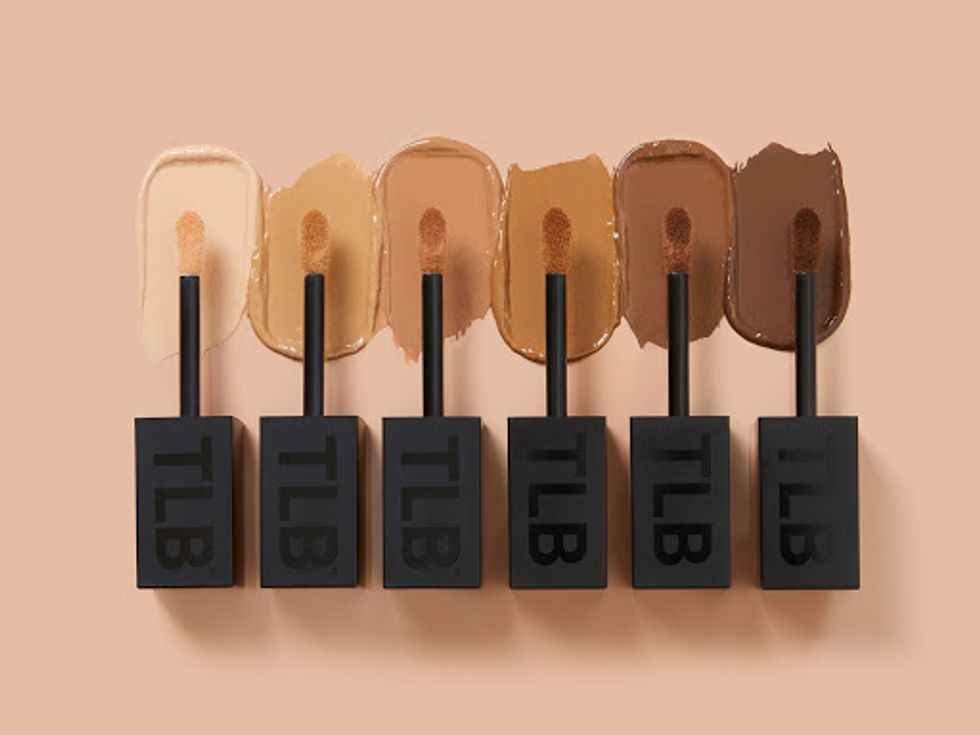
(photo: The Lip Bar)
"Everyone is probably going to think we're crazy for launching 6 concealers," Melissa jokingly shares about The Lip Bar's push to simplify the color-matching process for its customers. "The reality is that a lot of brands are launching 20+ shades of concealer but we've learned that it becomes more intimidating for the customer." At its core, The Lip Bar is all about streamlining the makeup process and eliminating the guesswork. Melissa's approach to complexion is all about understanding what universally works for each complexion family so her customers can get their desired look with no expertise needed.
Now more than ever, the attention has been brought to what brands are actually doing to create lasting change for their underrepresented customers. "I'm understanding that in time, things change, the customer's needs change. My job as the leader of the organization is to make sure that I'm always serving the customer." As universal beauty standards advance to be challenged and reimagined, Melissa continues to lead by making space for Black women in the beauty space to be seen as their whole and authentically beautiful selves.
"I'm understanding that in time, things change, the customer's needs change. My job as the leader of the organization is to make sure that I'm always serving the customer."
The inspiration within the formulation.
When she began formulating ingredients for The Lip Bar's newest and highly-requested concealer, Melissa stayed true to the brand's vegan and cruelty-free methodology by infusing avocado and macadamia oils for hydration and caffeine to awaken the under-eye area. "People take caffeine in the morning as religion because that's going to be the one thing that gets them through the day. This concealer is going to awaken your morning and beauty routine because of the caffeine and its brightening effects."
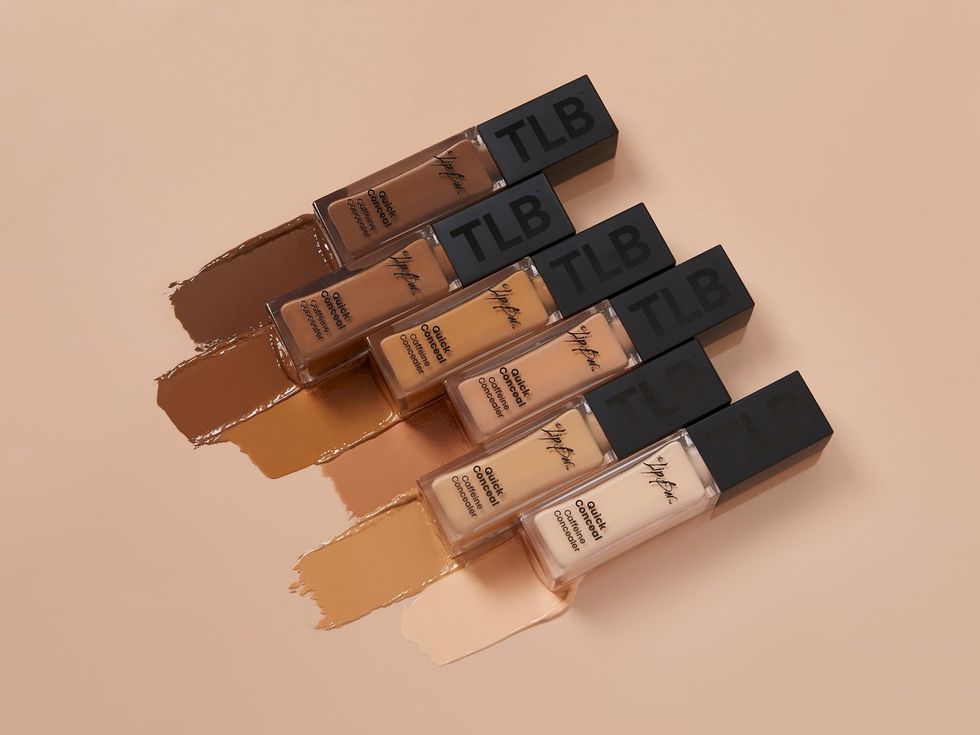
(photo: The Lip Bar)
As an on-the-go entrepreneur, Melissa understands the importance of creating products that make life easier for her customers. The Lip Bar's "Fast Face" philosophy and complexion-based shopping has informed their launches, making the Caffeine Concealer the perfect addition to amp up your morning routines. "It's close to your complexion to provide coverage for whatever blemishes you might have and blends into the skin for a buildable, sheer to medium coverage. "
On what it’s like being a Black business owner in the age of collective uprising.
June was a busy month for The Lip Bar. In fact, according to Melissa, "It was one of the best months for us in The Lip Bar's history." However, the hypervisibility that The Lip Bar and that many other Black-owned brands launched a wider conversation around why "Buying Black" is less of a momentary trend and more of a long-term fight for economic liberation. "I don't want charity dollars. I want life-long customers."
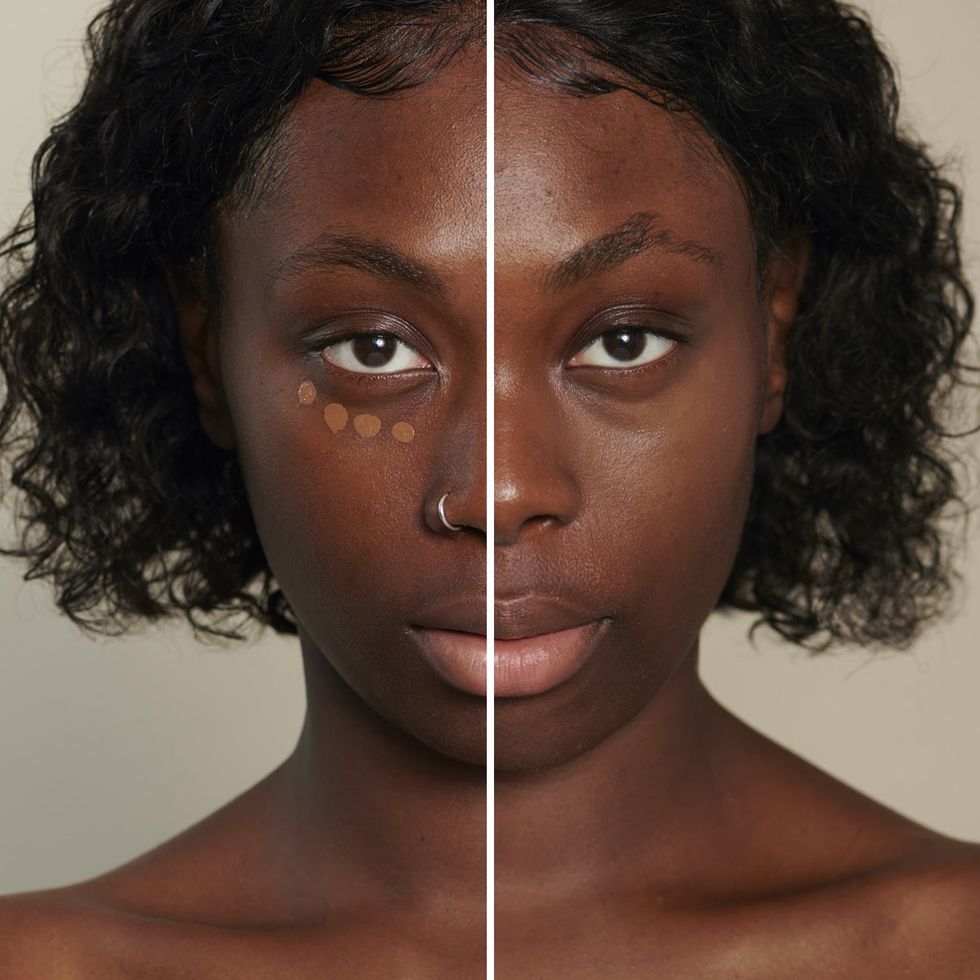
(photo: The Lip Bar)
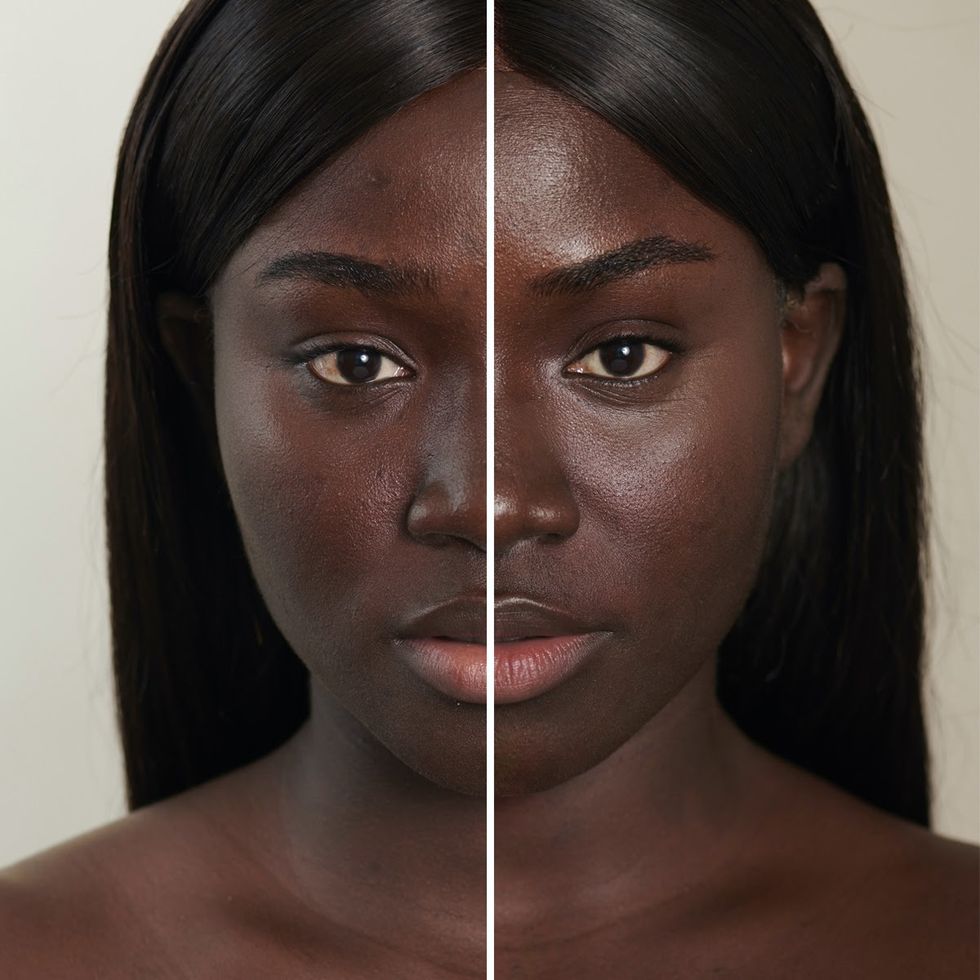
(photo: The Lip Bar)
"I don't want charity dollars. I want life-long customers."
In the age of social media, our collective attention span is constantly being pulled in different directions, so much that it has become increasingly important to differentiate trends from long-lasting movements. After witnessing the hypervisibility of Black-owned brands peak during the month of June, Melissa saw the need for a space where Black-owned businesses could be easily accessed in order to drive economic empowerment within the Black community. This motivated Melissa to co-found The BLK Pact, a dictionary of Black-owned businesses for people to pledge their allegiance to, reducing the economic deficiency and growing the economic empowerment within the Black community.
This initiative informs individuals on not just how to support Black-owned businesses, but what's at stake if they don't. "There's some alarming statistics out there, one of which says by 2053, the median household wealth could reach zero for Black households. So I know how important it is to make sure that we're focusing on supporting Black-owned businesses, but more importantly, it can't be a trend."
Conversations around diversity and inclusion are being reshaped to go beyond just making products to meet a quota. The goal is for the support of Black-owned businesses to be woven into the fabric of our community and to build awareness through information sharing. "I want to make sure we're going in with intention and longevity in mind. That has been the most helpful and has inspired people to continue on that journey."
To purchase your own Quick Conceal, Caffeine Concealer, click here. And for more of Melissa, follow her on Instagram @melissarbutler.
Featured image courtesy of The Lip Bar.
- How Lip Bar Founder Melissa Butler Went From 'Shark Tank ... ›
- The Lip Bar's New Fresh Glow Launch Reminds Us That We Can ... ›
- Dulce Candy Ruiz Quits YouTube - xoNecole: Women's Interest, Love, Wellness, Beauty ›
- The Lip Bar Founder Melissa Butler, Boss Up - xoNecole: Women's Interest, Love, Wellness, Beauty ›
- Meet The Lip Bar 's Young, Black and Flawless Founder • EBONY ›
- The Lip Bar Launches Fresh Glow Bronzer-Blush Duos for Every ... ›
- The Lip Bar Launches Fresh Glow, a Bronzer-Blush Duo for Every ... ›
- The Lip Bar Just Launched 5 New Products And They Aren't Lipsticks ›
- How Melissa Butler Launched the Lip Bar - Lip Bar Products at ... ›
- The Lip Bar - Challenging the Beauty Standard ›



